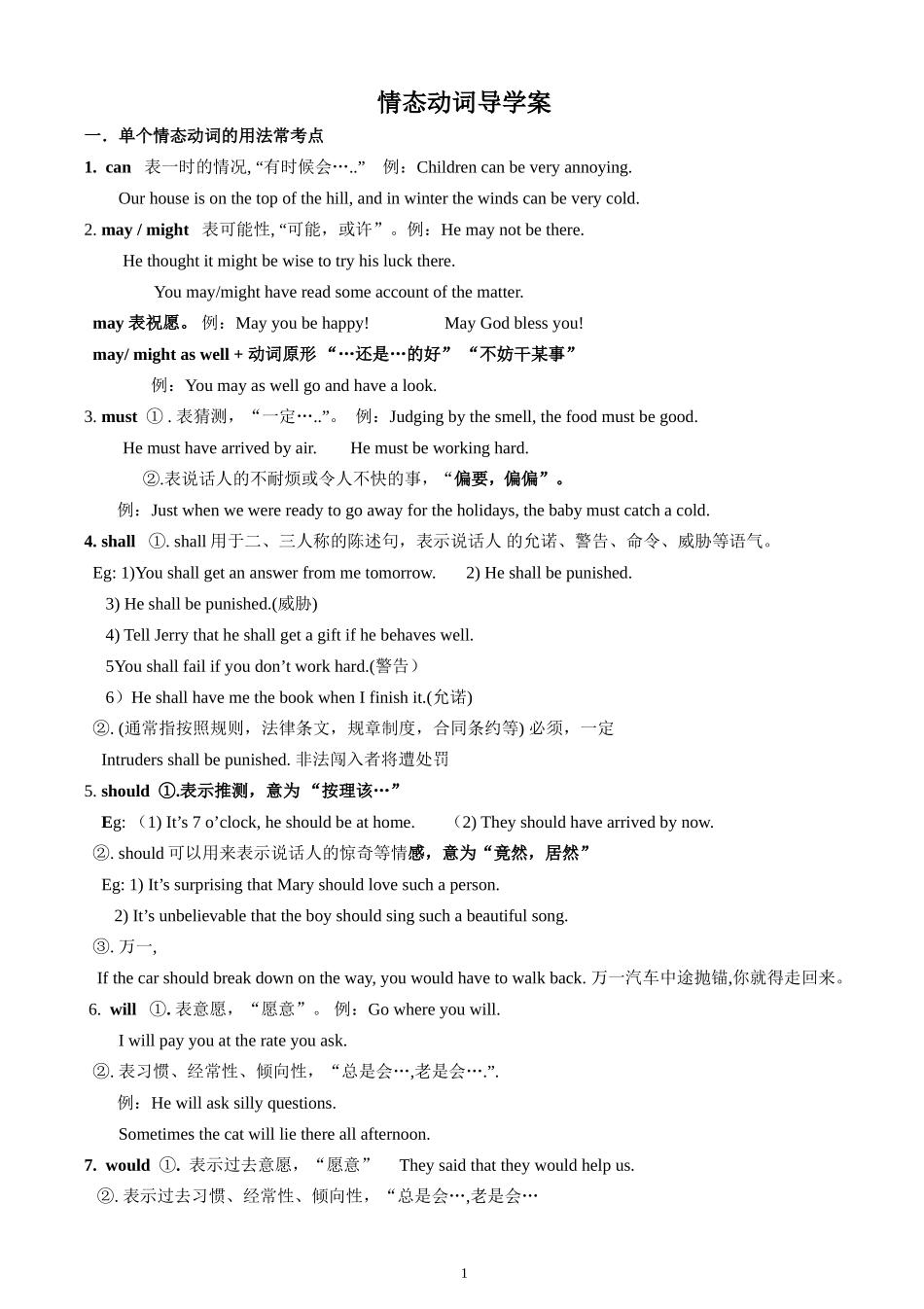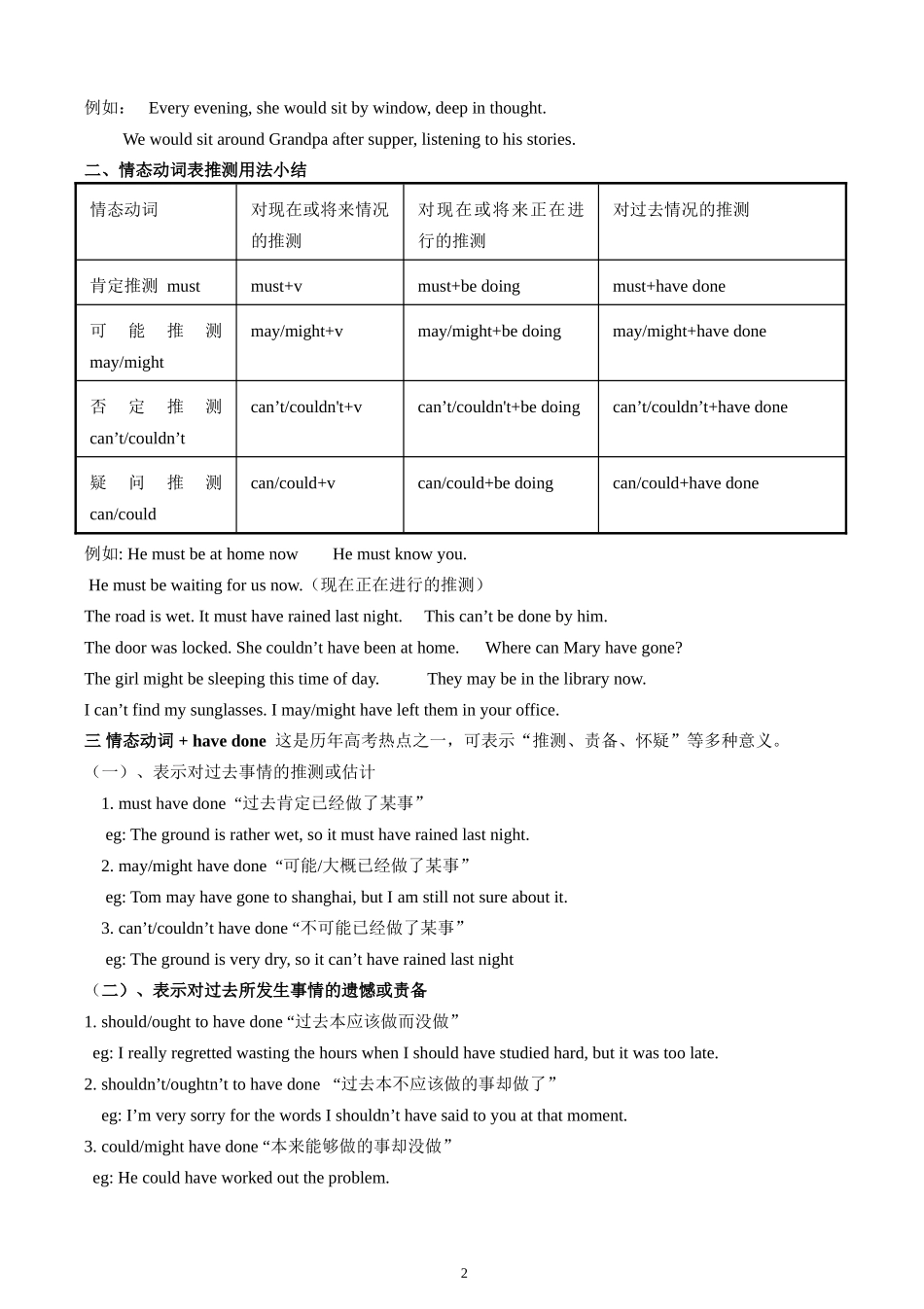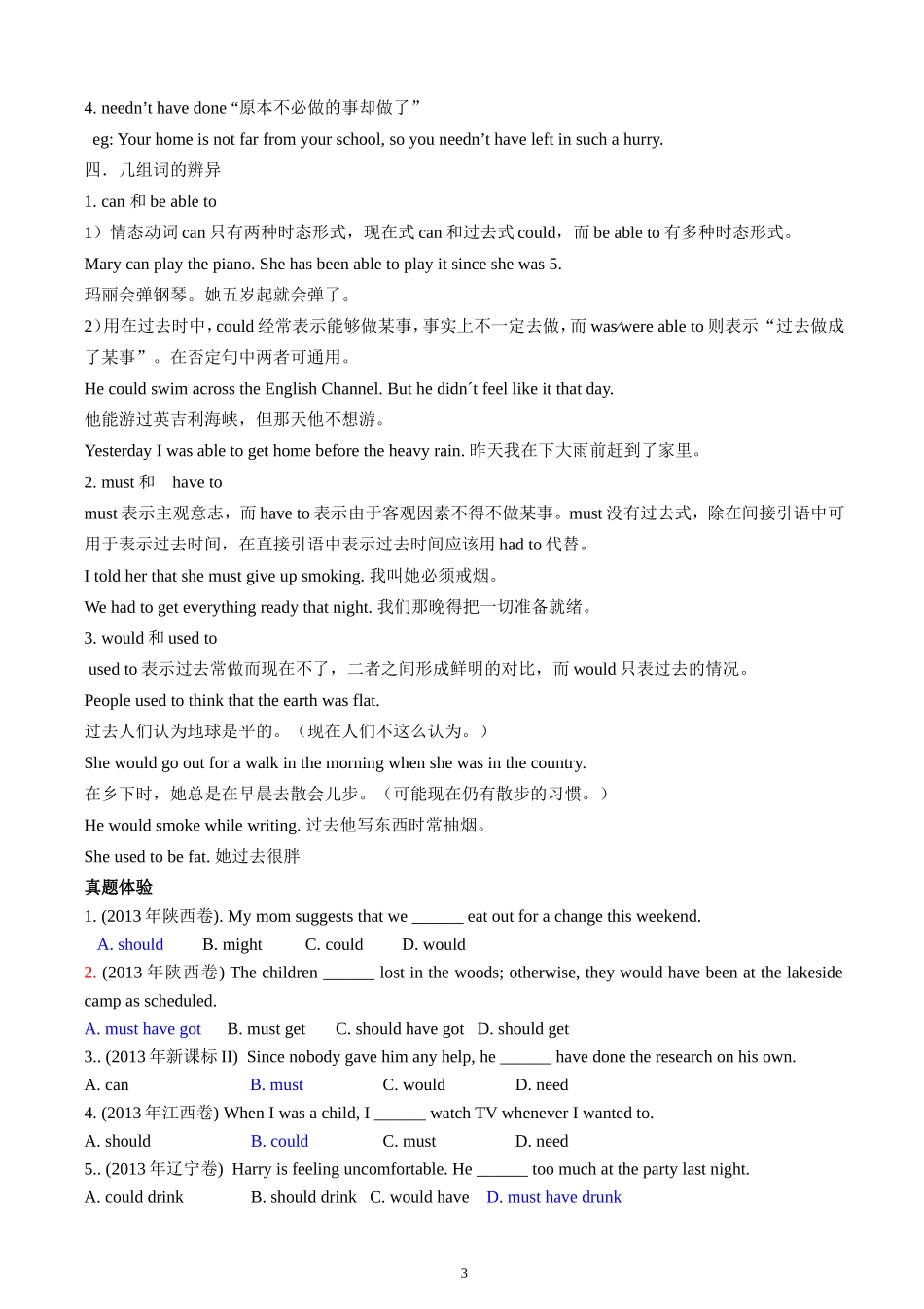情态动词导学案一.单个情态动词的用法常考点 1. can 表一时的情况, “有时候会…..” 例:Children can be very annoying.Our house is on the top of the hill, and in winter the winds can be very cold.2. may / might 表可能性, “可能,或许”。例:He may not be there. He thought it might be wise to try his luck there. You may/might have read some account of the matter. may 表祝愿。 例:May you be happy! May God bless you! may/ might as well + 动词原形 “…还是…的好” “不妨干某事” 例:You may as well go and have a look. 3. must ① . 表猜测,“一定…..”。 例:Judging by the smell, the food must be good. He must have arrived by air. He must be working hard.②.表说话人的不耐烦或令人不快的事,“偏要,偏偏”。例:Just when we were ready to go away for the holidays, the baby must catch a cold.4. shall ①. shall 用于二、三人称的陈述句,表示说话人 的允诺、警告、命令、威胁等语气。 Eg: 1)You shall get an answer from me tomorrow. 2) He shall be punished. 3) He shall be punished.(威胁) 4) Tell Jerry that he shall get a gift if he behaves well. 5You shall fail if you don’t work hard.(警告) 6)He shall have me the book when I finish it.(允诺) ②. (通常指按照规则,法律条文,规章制度,合同条约等) 必须,一定 Intruders shall be punished. 非法闯入者将遭处罚5. should ①.表示推测,意为 “按理该…” Eg: (1) It’s 7 o’clock, he should be at home. (2) They should have arrived by now. ②. should 可以用来表示说话人的惊奇等情感,意为“竟然,居然” Eg: 1) It’s surprising that Mary should love such a person. 2) It’s unbelievable that the boy should sing such a beautiful song. ③. 万一, If the car should break down on the way, you would have to walk back. 万一汽车中途抛锚,你就得走回来。 6. will ①. 表意愿,“愿意”。 例:Go where you will....


